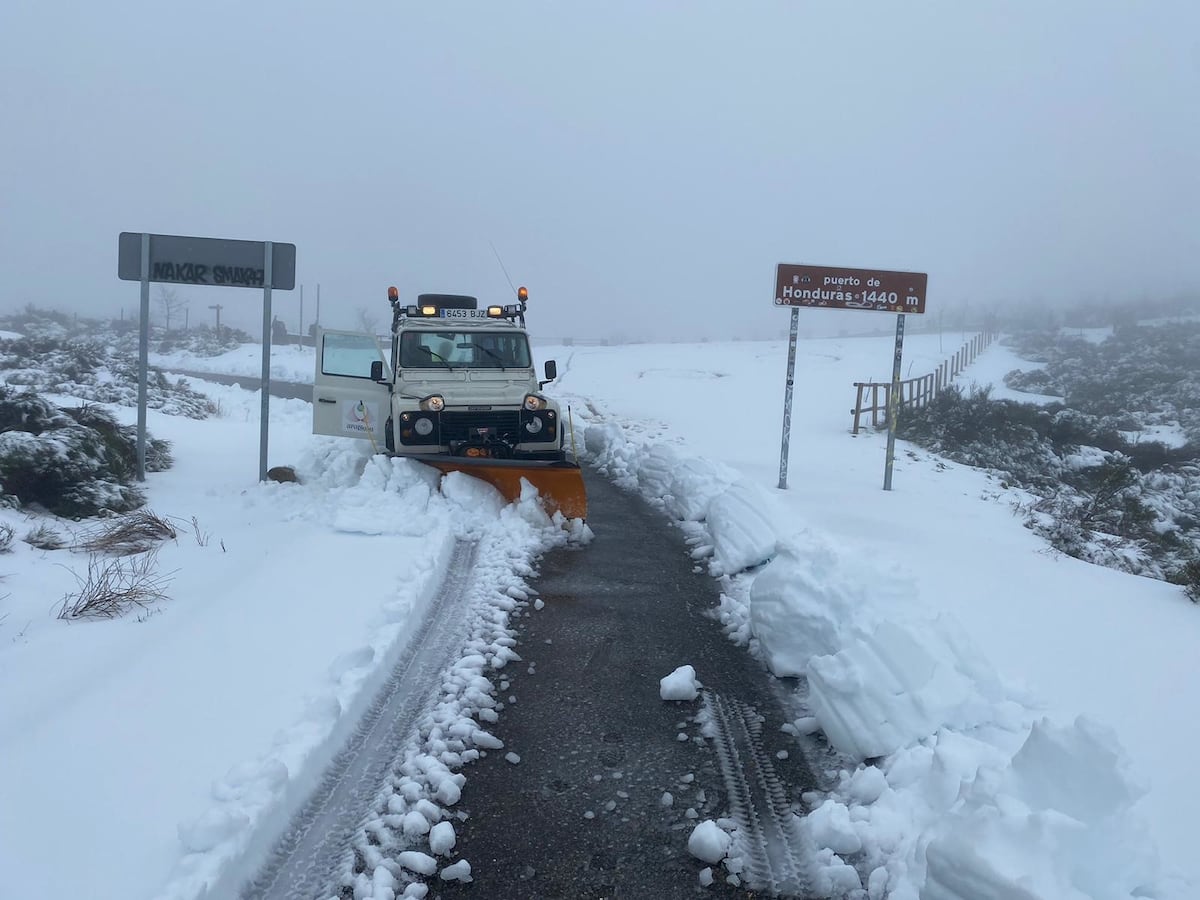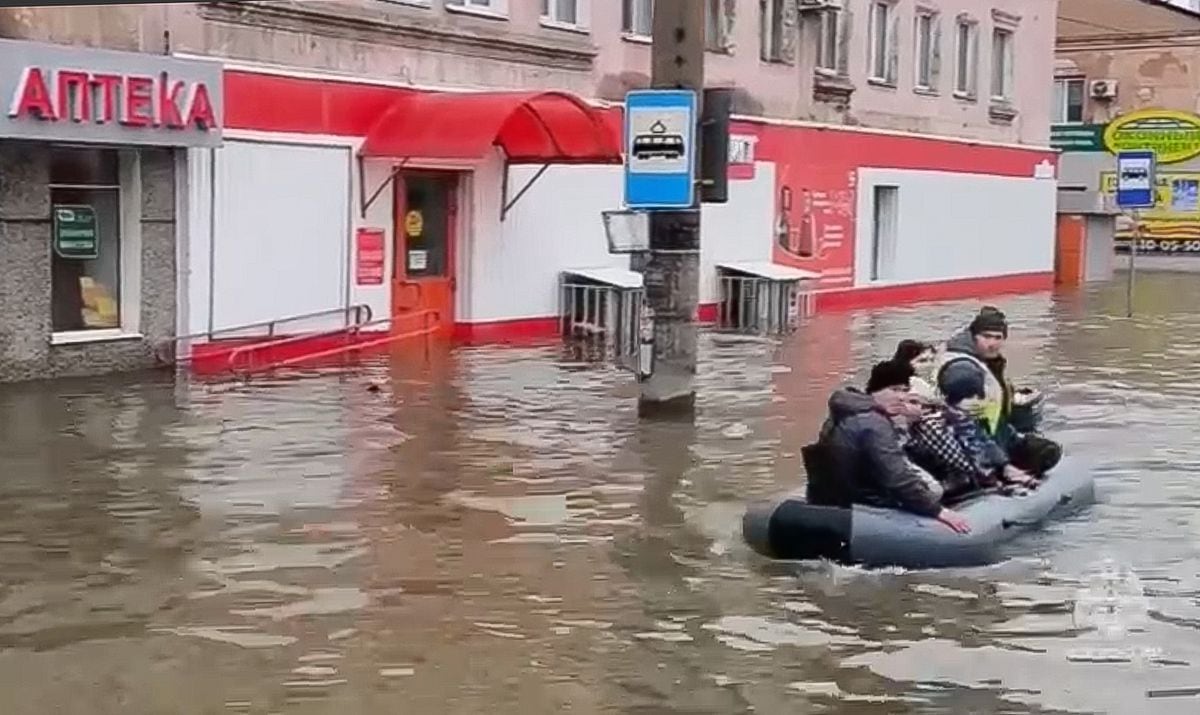Two days after the water from the Gévora river destroyed his house, José Luis Fernández continues to sweep and pick up the damage in Gévora, a district of Badajoz.
He bends down, and among the clothes and furniture on the floor, he manages to rescue a tenth of the Christmas lottery that he bought weeks ago.
"Let's see if he plays," he says.
This 72-year-old man did not have insurance and is at the mercy of public aid and if his district is declared a catastrophic area.
Fernández, who speaks slowly, assures that he has the support of his family to get ahead.
And while he observes the current state of his home, he acknowledges: "I still haven't assimilated what has happened."
Fernández is not the only one affected who does not have private insurance that covers the damage caused by the floods.
Juana Parra, 45, is in the same situation.
She is unemployed and has been waiting since 10:00 a.m. in the delegation that the Badajoz City Council has in the Gévora district for the social services to attend to her.
“This has been a very hard blow”, she comments, while she moves the crutch that she uses to walk.
The delegate of the Badajoz City Council in the Gévora district, Petri Samino, answers the phone to those affected by the floods. ROBERTO PALOMO
Intact interior of one of the rooms of the house of José Luis Fernández flooded by the river Gévora. ROBERTO PALOMO
Agustín García Pereira, owner of the Agustín bar, poses at the counter of his bar two days after the establishment was flooded. ROBERTO PALOMO
Detail of the wall of the house of José Luis Fernández where the height that the water reached can be seen. ROBERTO PALOMO
Two days after the overflow of the Gévora River, the flow continues at a high level almost reaching one of the bridges. ROBERTO PALOMO
José Luis Fernández's belongings covered in mud after his house flooded due to the overflow of the Gévora river. ROBERTO PALOMO
Neighbors of the flooded houses facing the Gévora river in the isolated houses of Gévora remove the mud accumulated on the facade with the help of a tractor. ROBERTO PALOMO
Juana Parro Garcia (left) and Maria Angeles Ramirez (right), residents of isolated houses in Gévora, went to the City Hall this morning to request help from the municipal Institute of Social Services after their houses were flooded by the flooding of the Gévora river. ROBERTO PALOMO
At two in the afternoon, Ana, the social worker who covers the three most affected districts of Badajoz, Gévora, Valdebótoa and Sagrajas, arrives.
She shows up in Gévora after seeing more than 12 people in just one morning.
Ana is in charge of preparing the reports to process the aid launched by the Social Services Department of the Badajoz City Council.
“We dedicate ourselves only to providing the basic needs of the affected people: clothing, lodging, food, etc.,” says Ana, who now must make the pertinent reports for financial aid to be granted.
After the meeting between the two, Parra is optimistic that her administration can help her "at least to pay rent to stay in."
The Junta de Extremadura has agreed to enable a credit of four million euros for people who have suffered damage to their properties, as announced on Wednesday by the government spokesman, Juan Antonio González.
The channeling of the aid will be done through the signing of agreements with the municipalities of the most affected localities so that technicians can be hired who will be in charge of evaluating the state of the homes and subsequently proceeding with the processing of the aid.
However, among the people affected, there is a feeling that they have to wage war on their own.
Some have contracted private insurance, and are calmer.
This is the case of Agustín García, who has his restaurant in Gévora.
He says that nothing like this had ever happened to him.
"Yesterday I
stopped
crying," laments García.
He had to cancel two “big” company lunch reservations.
At this time of year he is in high demand.
The restaurant is very popular in the area and its "star dish" is grilled meat cooked with oak charcoal.
García shows with regret the images of the disaster caused by the storm and tells that the food has gone bad and that some machines have broken down.
Luckily, insurance covers all damages.
"This afternoon the expert is coming to make an evaluation," he says.
The area where the bar is located is now practically clean and free of water, and García predicts that he will soon be able to reopen his premises.
In the parking lot, waiters and municipal workers work tirelessly.
The City Council has provided them with several containers and cleaning material.
Other neighbors have not been so lucky, and have not yet received help from the administrations to clean their houses.
Carlos González works for the insurance company Red Mediaria.
He is responsible for the office of this company in Badajoz.
He confirms that these days he and his colleagues are overwhelmed by work.
“We are processing all day.
Only in these two days we have processed more than 40 files”.
Among them, he has had to manage that of his sister, who has also been affected by the floods.
In the event of heavy rains or another type of natural disaster, private insurers delegate to the Insurance Compensation Consortium, a public company attached to the Ministry of Economy, but whose capital comes from contributions made by private companies in the sector.
This corporation is the one that is assuming the demand on the part of those affected.
In this way, companies seek to cushion the economic impact of covering the expenses generated by this type of disaster.
And while private insurers carry out their function, more quickly in some cases than in others, public institutions begin to design public aid.
The mayor of Badajoz, Ignacio Gragera –a former Ciudadanos militant recently signed by the PP–, explains to EL PAÍS that they are still evaluating the damage caused.
“There are between 30 and 40 families affected.
We are evaluating a budget modification, because with the ordinary ones it will not be enough”, says Gragera.
"We will increase the aid as far as we can go," he comments, adding that he first wants to assess at the level of competence to what extent the Junta de Extremadura and the Government are committed to this situation.
He is waiting to know if the Executive is going to declare the area as catastrophic.
If so,
At the moment, it is the delegates of the Badajoz City Council who are taking charge of the situation.
Petri Samino, delegate in Gévora, indicates that the aid received so far is insufficient, and urges the administrations to offer solutions as soon as possible.
"Those who have insurance more or less manage, but those who do not have it are at the mercy of the city council and the Board," explains Samino.
Subscribe to continue reading
Read without limits
Keep reading
I'm already a subscriber





/cloudfront-eu-central-1.images.arcpublishing.com/prisa/ZBXRIG3Q45FTPAS6XESRYPVJXI.jpg)



